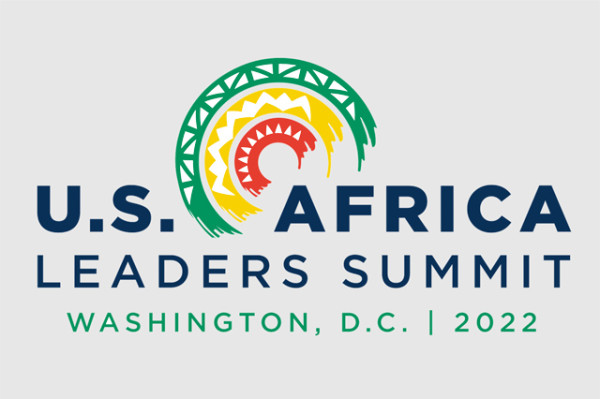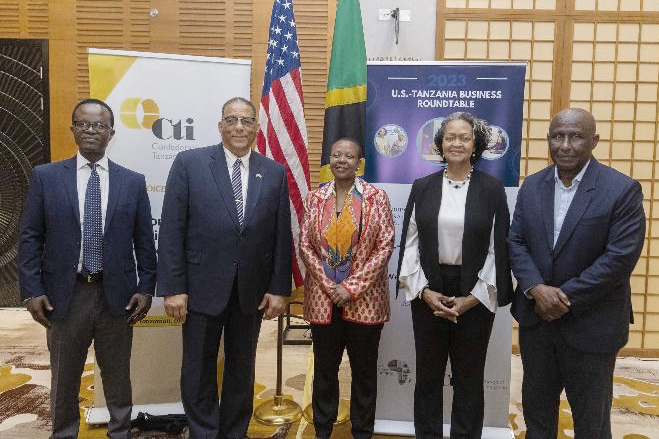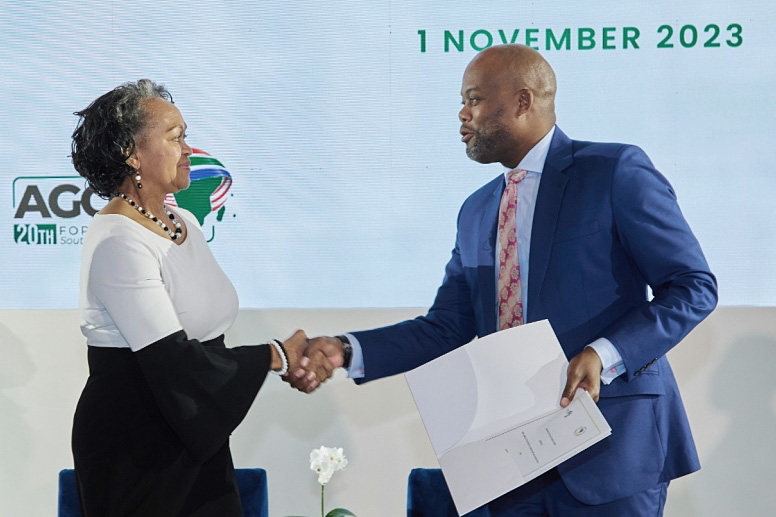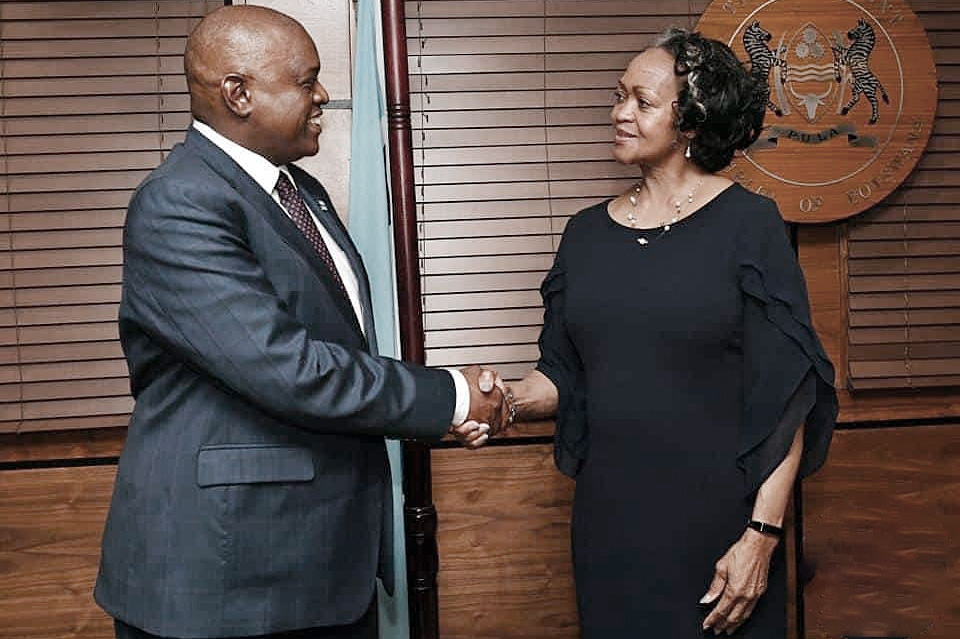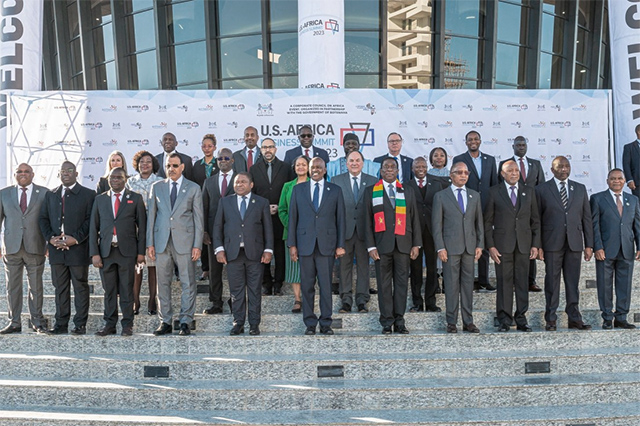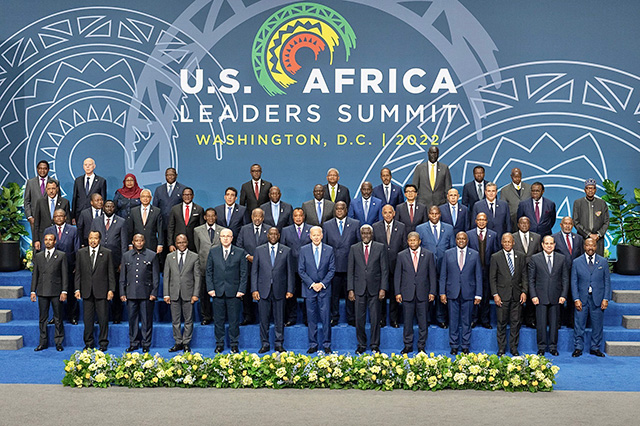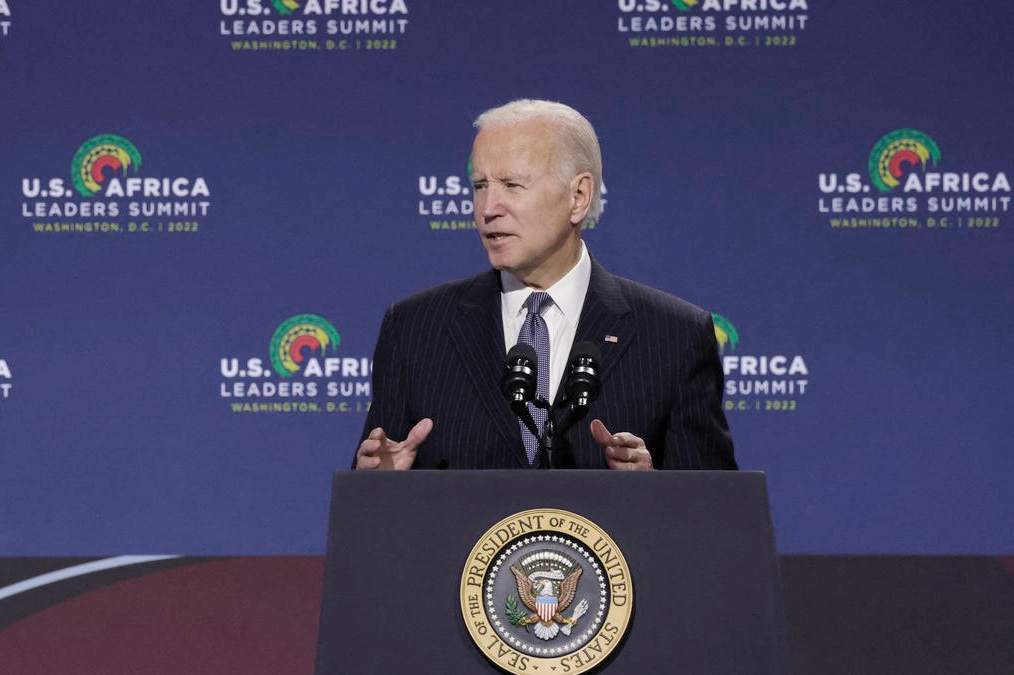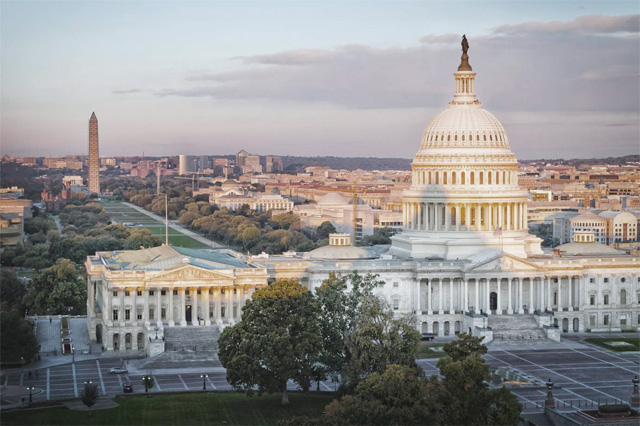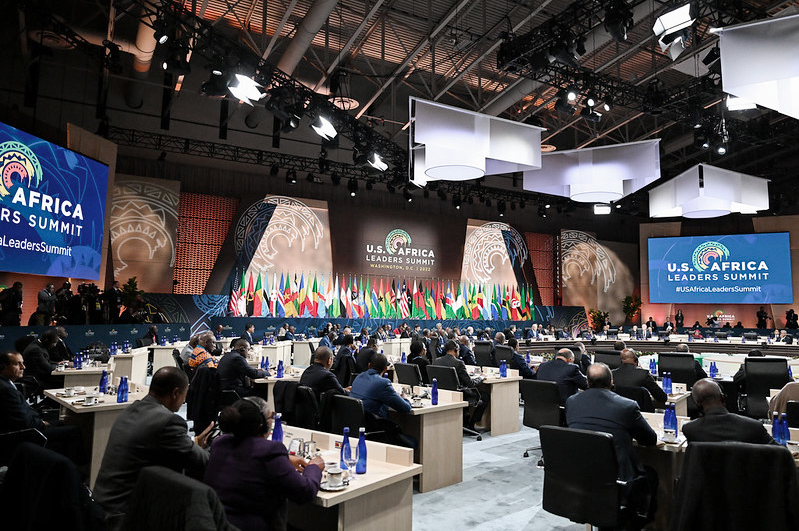‘US companies should be looking at Africa for sourcing and manufacturing’
The president and CEO of the Washington-based Corporate Council on Africa talks to African Business ahead of the US-Africa Leaders Summit in December.
The US-Africa Leaders Summit takes place in Washington, DC, from December 13 to 15 2022. With 49 African leaders invited, the meeting is due to cover multiple aspects of the relationship between the US and Africa, including economic engagement, security, education, health and climate-related issues.
Florie Liser has headed the Washington-based Corporate Council on Africa since 2017. During a career at the US State Department, where she served as assistant US trade representative for Africa, she helped structure and implement the US African Growth and Opportunity Act (AGOA), which provides African countries with tariff-free access to the US market.
She spoke to African Business about what can be expected from the summit and the future of US trade and investment on the continent.
Florie Liser: There is a lot of excitement. What I hope we will see is that there will be structure and a framework that we can build on until the next summit.
I like some of the things that the secretary of state, Antony Blinken, was talking about a month or so ago in South Africa. He was talking about the fact that the US interest in Africa is not to counter anybody else. We have our own reasons, our own history, our own stake in Africa. He also acknowledges Africans have the right to have whichever partners they want.
This is not some geopolitical game where they have to choose us versus this one or that one or the other one. There are reasons why Africa is an important geostrategic partner of the United States. People say the US is not in Africa, but that’s a perception that is also not accurate because there are many US companies that are in Africa, and are invested in Africa.
Now – have they done as much as we would like? Have they fully met the promise of US-Africa engagement? No, we are not there yet, but it’s also not true to say that the US is not in Africa. We have members of the Corporate Council on Africa that have been in Africa for 60, 100 years. They’ve been there, they’ve been engaged, they’ve been investing and they are still investing.
The pandemic is changing the world in many ways, not least around supply chains. This is a great point at which US companies and others around the world should be looking at Africa as the newest and maybe most secure and resilient platform for diversifying their sourcing, for manufacturing in Africa.
You look at countries like DRC, which has 60% of some of the [world’s] critical minerals – why should those products be shipped out of Africa to make batteries for the electric vehicles that are the future of transport? Africa would be a perfect place to be investing in strategic minerals and actually producing the batteries there on the continent.
We’ll hear about that. We’ll hear about some particular deals and projects that are being launched. We’ll hear about ways that US companies are partnering. I expect we’ll hear some things from the US government as well. We’re hearing of potential announcements that may be made during this summit. It’s exciting.
The current iteration of AGOA comes to a close in 2025. Could there be an announcement at the summit about its future?
I don’t think that will happen at this summit. But [US Trade Representative] Ambassador Katherine Tai is holding a trade ministerial meeting on 13 December, and AGOA will be on the table: how to extend it and go beyond AGOA, which is limited to only the goods trade.
I’m a big proponent of AGOA, but we also need more than AGOA. Many things have changed since we launched AGOA back in 2000. And the question to ask is: how do we increase investment? Because it’s not just about trade: it’s also about investment. The Africans I speak to are very focused on investment as well as trade.
Rosa Whitaker, the first assistant US trade representative for Africa, recently proposed an initiative to give tax breaks to US companies to drive Africa investment. What initiatives do you think the US can work on?
Providing tax breaks to US companies – that’s a tough one. But I like the idea, and her proposal on that. Whether or not Congress will do that, I’m not sure. I also like the idea of expanding AGOA to trade in services. I don’t know how they would do it, but that’s important.
I’ve been asking: why should a trade programme between the US and Africa cover only sub-Saharan Africa? I have also been saying that maybe one of the criteria for AGOA eligibility should be that countries eligible for AGOA are implementing the provisions of the African Continental Free Trade Area (AfCFTA).
Why would we do that? Because we know that intra-African trade is important, that it should be growing – so we as the United States should, in our own trade programme with Africa, support Africans doing what they need to do among themselves. Then if they are successful in reducing the barriers to trade among themselves that also makes them more competitive for global trade.
How can Africa tap large US institutional investors such as pension funds?
During our US-Africa Business Summit in Marrakech in July, we were able to bring six institutional investors from US pension funds. One of the things we learned is that most pension funds, and most institutional investors in general, don’t have an Africa portfolio: they have an emerging-market portfolio.
This is important because you then have to get them to look at Africa relative to Asia and Latin America and Southern Europe and so forth. That takes a lot of work, to actually get them to look at the continent. They have then to be able to take that back to their boards and their investment committees.
The other thing is that institutional investors, most of them at least, don’t invest in projects – rather, they invest in funds. So we need to create vehicles for them to be comfortable to invest in, to say that we’ve seen successful investments from private equity and from venture capital, which operate very differently.
You have high-net-worth individuals, family offices, that invest in a different way and are also interesting groups to approach. Obviously to fill the $130bn infrastructure gap requires a different approach.
There is a lot of capital out there and so I’m always overwhelmed by the people who say there’s not enough capital investing into Africa, that there’s a lack of capital. If you talk to the other side, they say there is money, there is capital, they just can’t find bankable projects. I say to people: which one of those is true?
I’ve come to the conclusion that both are true, because clearly there are a lot of projects in Africa that need funding, I also see that for the investors there are certain things that they are looking for and certain ways that they operate. You have to actually work with them, to meet them where they are.
The US has just concluded its mid-term elections. Do political changes affect African policy or is it a bipartisan issue?
I don’t think that the mid-term elections in the US are focused region by region. I don’t think there is any reason why any region of the world should feel that things will change for them because of the mid-term elections.
In the case of Africa, the experience we’ve seen is that the biggest pieces of legislation supporting Africa have been supported on a bipartisan basis – by both the Senate and the House of Representatives, and by both Democrats and Republicans. That is not true for all the regions of the world. Africa has been fortunate to have that kind of bipartisan support.
Florie Liser is the president and CEO of the Washington-based Corporate Council on Africa
Follow this link to various CCA Special Events on the sidelines of the US-Africa Leaders Summit


